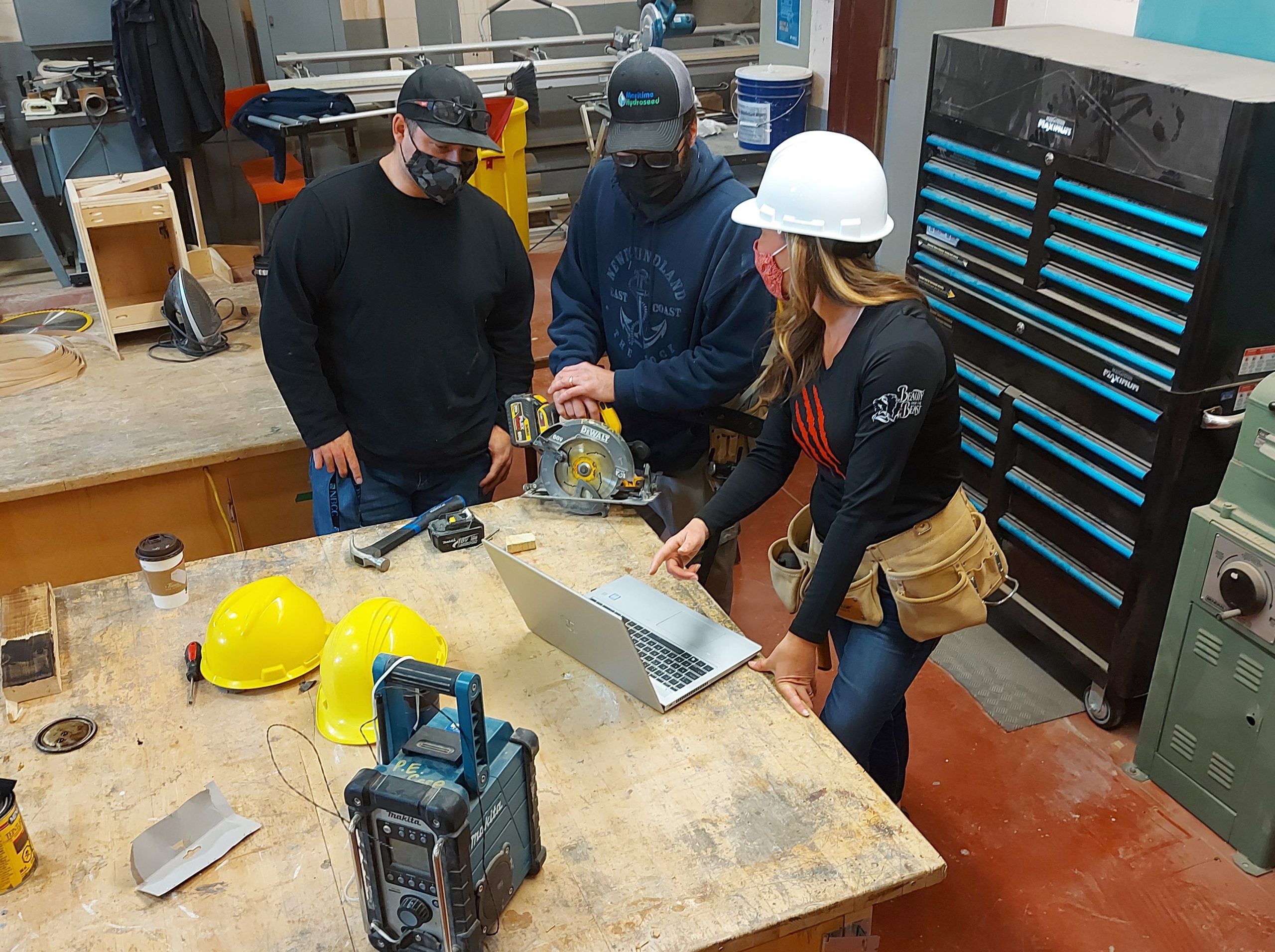At NBCC, the blended academic delivery model is opening more doors to post-secondary education. In the Carpentry program at the Woodstock Campus, a devoted dad of four, a working woman, and a commuter who lives two hours away from campus all say they are only able to retrain because of the flexibility afforded by blended academic delivery.
“We have four kids at home,” said Randy Sanford, who left a career in Human Services to train in the trades. “This is honestly the only possible way I can do it.”
Sanford and his classmates spend two days a week in the carpentry shop at the campus, learning the practical skills they’ll need to hone their craft. The other three days of the week, their classes consist of instructor-led virtual theory. For those with work, family, and life obligations, the flexibility of blended academic delivery helps them balance their learning with multiple other responsibilities.
Jason Epstein lives a two-hour drive from Woodstock. Travel to and from the campus adds four hours to his day, and subtracts money in fuel expenses from his budget.
“It’s been great for me. If I had to travel that distance five days a week it would be really hard for me,” he said. “This way, I only have to do it two days a week, and the other three days I can learn from home.”
Trina Jones works as a Project Manager, supervising sub-contractors on job sites. She wanted to learn the carpentry trade to give her more insight on the work of the sub-contractors, but didn’t want to give up her career to do so. With blended academic delivery, she has the ability to earn while she learns.
“It’s allowed me to continue working at the same time as I’m learning these new skills,” she said. “The flexibility, for me, was the most important thing.”
As a mature student who has spent time in the workplace, Jones was already equipped with the so-called “soft skills” – things like communication, adaptability, and work ethic – that are just as important on the job as technical skills. For students attending NBCC right out of high school, she sees a greater opportunity to develop those skills.
“If NBCC sticks with blended learning and hones it, they’ll probably end up with better students who are more prepared for life,” she predicted. “They’ll be forced to learn organizational skills, time management, and computer skills. In this world today, it’s more critical than ever to have those skills.”
Carpentry instructor Garth Cleghorn agrees. He rejects the perception that trades people need only be good with their hands to be successful. The technical skills his students are learning in the virtual portion of their program are just as important as the technical skills they’re learning in the shop.
“Anyone who wants to work for themselves in today’s world needs a level of online comfort, to do billing, e-transfers, taxes, permit applications, look up codes, all those kinds of things,” he noted. “That’s how the world works now.”
For more information on NBCC’s training opportunities, visit nbcc.ca.
